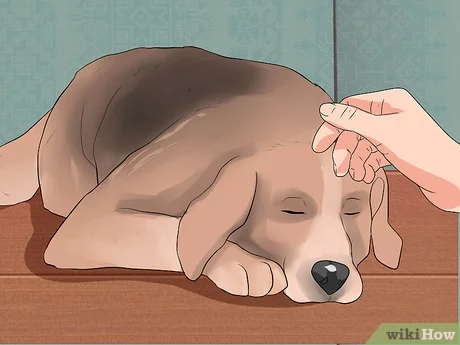Why Do Dogs Hide Food
Why Do Dogs Hide Food? Unraveling the Canine Mind
Dogs are fascinating creatures that have been our companions for thousands of years. They have evolved alongside humans, adapting to our way of life and becoming an integral part of our families. However, despite their domestication, dogs still exhibit many behaviors that hark back to their wild ancestors. One such behavior is the tendency to hide food.
As a dog owner or lover, you might have witnessed your furry friend burying a bone or stashing some kibble under a pillow or in a corner of the room. This peculiar behavior may seem strange to us humans, but it has deep roots in the canine psyche. In this article, we will explore why dogs hide food and what it says about their instincts, intelligence, and emotions.
The Evolutionary Basis of Food Hoarding
The first thing to understand about dogs’ behavior is that they are descended from wolves, who are known for their pack mentality and survival skills. In the wild, wolves hunt and scavenge for food, but they don’t always get lucky. To ensure that they have something to eat during lean times or when food is scarce, wolves hoard food by burying it in caches or hiding it under rocks and logs.
This instinctual behavior helps them survive by allowing them to stockpile resources that can sustain them when prey is hard to come by. It also serves as a way of protecting food from other predators who might steal it from them. Over time, this behavior became ingrained in the wolf’s genetic makeup and passed down through generations.
When dogs were domesticated from wolves, they retained many of these traits, including their propensity for hoarding food. Although dogs no longer need to scavenge or hunt for their meals because we provide them with food on a regular basis, their instincts tell them otherwise.
Reasons Why Dogs Hide Food
1) Instinctive Behavior: As mentioned earlier, dogs are hardwired to hoard food as a survival mechanism. Even though they don’t need to do it in the modern world, the instinct still kicks in.
2) Fear and Anxiety: Dogs might hide food when they feel stressed or anxious, such as during thunderstorms or when there’s a lot of commotion in the house. Hiding food gives them a sense of security and control over their environment.
3) Competition: If you have multiple dogs in your household, they might hide food from each other as a way of keeping it away from their siblings or asserting dominance.
4) Boredom: Dogs might also hide food out of boredom. If they have nothing else to do, burying something can be an entertaining activity that relieves stress.
5) Habitual Behavior: Finally, hiding food can become a habitual behavior that dogs engage in simply because they’ve always done it. Once a habit is formed, it can be hard to break.
The Intelligence and Emotions Behind Food Hoarding
Dogs are intelligent creatures that are capable of complex thoughts and emotions. When it comes to hiding food, there’s more going on than meets the eye. Here are some ways that this behavior reveals aspects of their personality and feelings:
1) Planning Ahead: Dogs who hide food demonstrate an ability to plan for the future and anticipate their needs. This shows intelligence and foresight.
2) Emotional Attachment: Sometimes dogs will bury things like toys or bones that they’re particularly fond of. This suggests that they have emotional attachments to certain objects and are trying to keep them safe.
3) Secretive Nature: Dogs who hide food may also be exhibiting a secretive nature. This could indicate that they have trust issues or are guarding something valuable.
4) Playful Spirit: The act of burying something can also be seen as a playful behavior ¨C after all, digging around in dirt is a fun activity for many dogs.
Conclusion
In conclusion, the behavior of dogs hiding food is not as simple as it might seem. It’s rooted in evolutionary history, but also reveals insights into their intelligence, emotions, and personality. As a dog owner, it’s important to understand why your pet e



